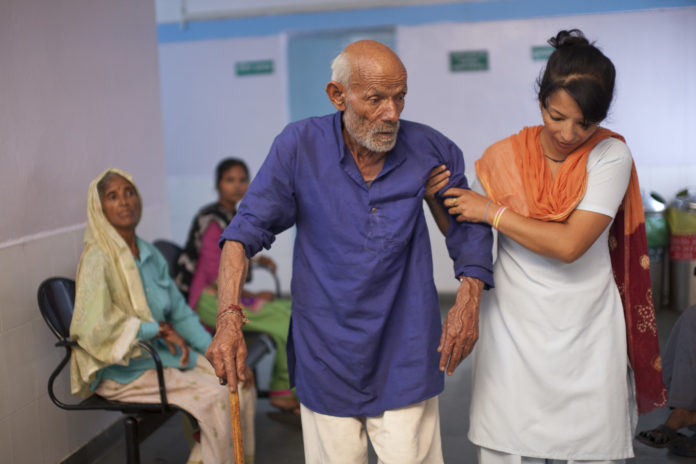In the first state level consultation for National Health Protection Scheme, also known as Modicare, Centre fails to provide answers
Instead of finalising a roadmap for the implementation of Modicare, the two day meeting with states ended up discussing state’s concerns about the ambitious Rs 5 lakh health cover plan for 10 crore families, without the Centre being able to offer any solutions. The plans for the implementation of the National Health Protection Scheme (NHPS) as Modicare is formally known, are yet fluid. Without a clearance either from the Union cabinet of the Expenditure Finance Commitee (EFC) the Centre found itself incapable of addressing any concerns immediately.
States meanwhile made it clear that while they would appreciate the additional funding, the scheme will have to be co-branded – which means it would have to have monickers given by both the Centre the state – and there could not be any paring of the existing beneficiary list. According to the health ministry background notes and concept papers were shared with all states before the two day meeting.
Maharashtra for example provides a Rs 2 lakh annual health cover to 1 crore people but as per SECC data only 60 lakh make the cut.
Announced in the Union Budget for 2018-19, NHPS may be implemented through a trust or through insurance companies but the Centre does not even have clarity yet on that front. While the Centre estimates that the scheme will cost around Rs 12000 crore, requiring a more than Rs 4000 crore from states, the actual financial liability will be worked out when the tendering process is completed.
For states therefore the main concern was that while they are looking at a higher financial liability post NHPS, the SECC qualification could leave many of their existing beneficiaries out, the political consequences of which no state is willing to bear. Maharashtra for example provides a Rs 2 lakh annual health cover to 1 crore people but as per SECC data only 60 lakh make the cut.
On Friday the six working groups – on processes, information technology, fraud detection, awareness generation, institutional arrangement and continuum of care made their presentations. The groups had detailed deliberations based on the experiences of Rashtra Swasthya Bima Yojana (RSBY) implementation, implementation of the States’ own schemes and global experiences. Best practices for each of the process related to beneficiary identification, hospital empanelment, hospitalization services, grievance redressal mechanisms, IEC activities etc., were identified from each State and recommendations were presented by each working group to the Ministry. States also shared the current challenges being faced and potential solutions were shared with them.
On the second day of national consultations, five groups of States were formed based on the implementation status of health insurance schemes: States with only RSBY, States with RSBY and their own schemes, States with only their own schemes in Insurance mode, States with only their own schemes in Trust mode and States with no health insurance/ assurance schemes.


